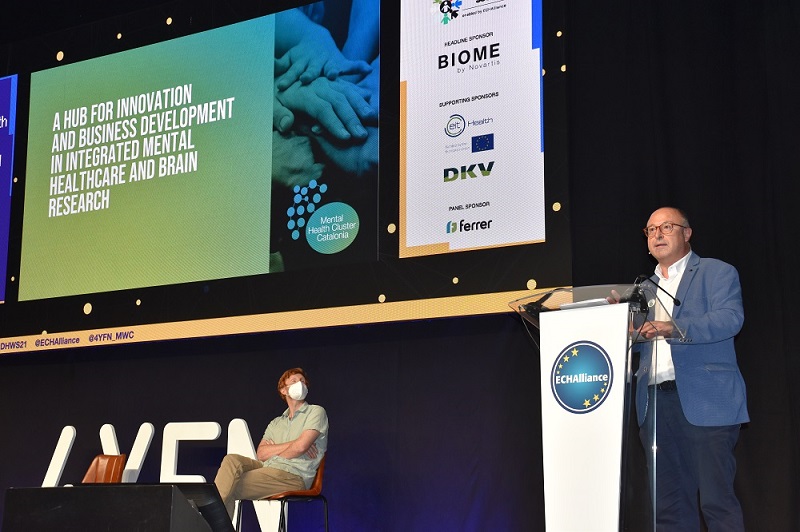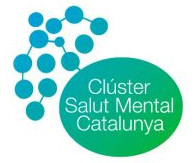It’s been only a few hours since we said goodbye to the 2021 edition of the MWC in the midst of the COVID-19 pandemic. While we process and settle the experience, from the Mental Health Cluster we want to share one of the sessions of The Digital Health & Wellness Summit, hosted by ECHAlliance. On his participation in the ‘Digital & Brain’ session, the president of the MHC, Dr. Francesc Arrufat, focused on the effects of the pandemic on mental health and the possibilities to address them through tech solutions.
We were also inspired by the fellow panellists participating on the session: Anna Maiques, CEO at Neuroelectrics, presenting her technology for brain stimulation, and Charlie Pearmund, managing director from Virtual Bodywork, a VR technology to improve the population’s mental health. Dr. Arrufat had the occasion to share our most recent projects: our brand new Care & Autonomy Living Lab (CALL), and Brains, our science dissemination journal on Business, Research, Ageing, Innovation, Neurosciences and Social affairs.
Compassion and self-compassion, the key to treat mental health disorders

He also shared, from a clinical perspective, some of the keypoints of the direct and indirect impact of the COVID-19 pandemic on the general population’s mental health. Also, the way to approach any individual’s mental suffering who do not suffer from any mental health disorder but is prone to develop it, is to do so from a positive point of view, to work with resilience. More particularly, both Dr. Arrufat and Charlie Pearmund, agreed that feelings such as compassion and self-compassion are great ways to break negative thoughts through the use of new technologies.
When people experience a traumatic situation (such as a pandemic), we have to focus on their strengths rather than their weaknesses, help them manage their negative emotions, as well as reinforce and rely on positive emotions such as gratitude, kindness and social support. The latter is the key factor in achieving a good mental health. In this sense, a bad use of social media in adolescents can have a very negative outcome. At the end of the day, “what patients need is the right care at the right time and place.”
In this respect, technology has played a key role lately, as teletherapy had a major contribution during the COVID-19 pandemic in overcoming the barriers between patients and medical professionals, as well as providing a safe environment for everyone. Other major possibilities are being augmented and virtual reality (AR and VR) as well as digital treatments, but it is crucial that these software obey to correct ethics in terms of data protection regulation.
We will soon share the video of the session. Stay tuned!
Amb el support de:











